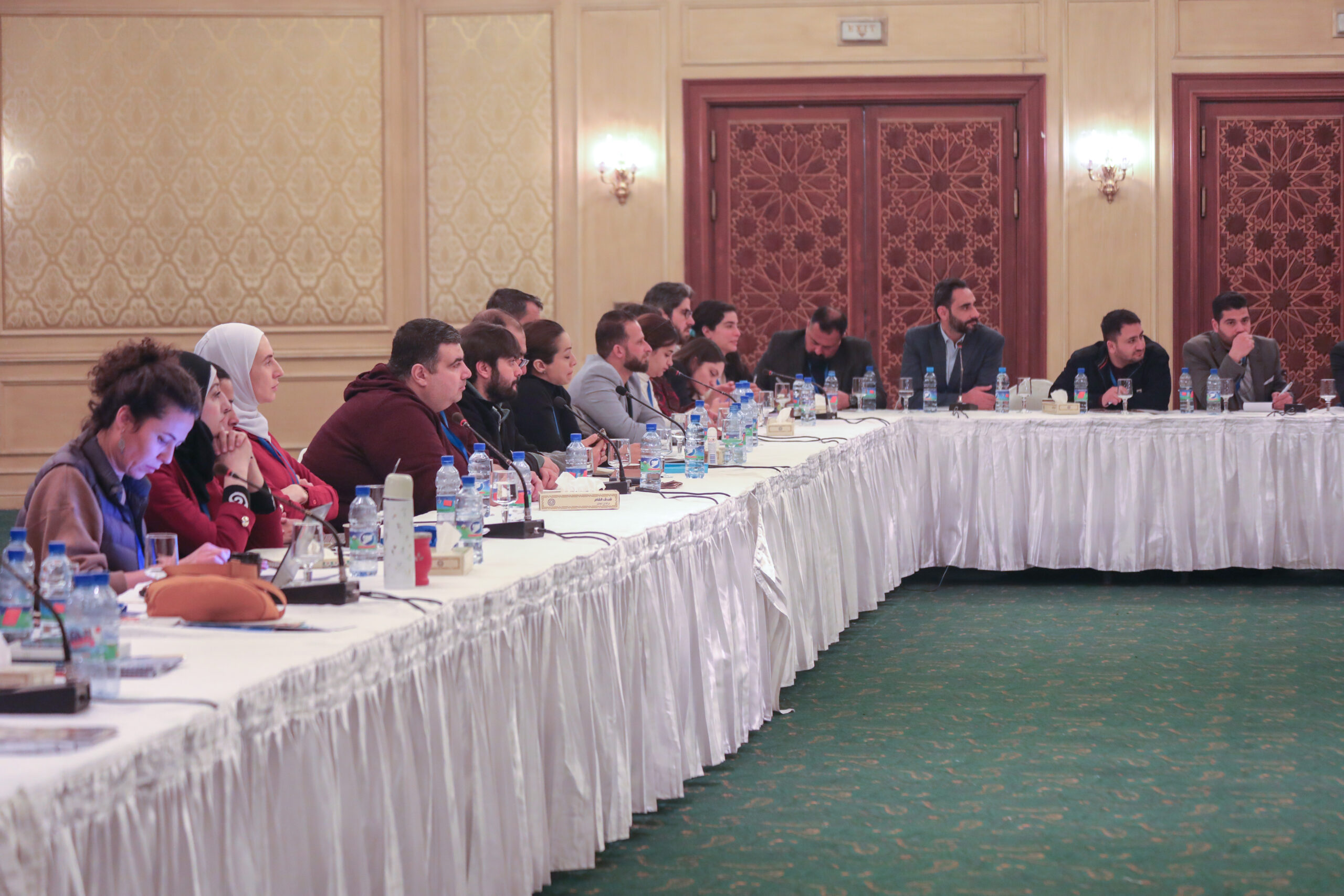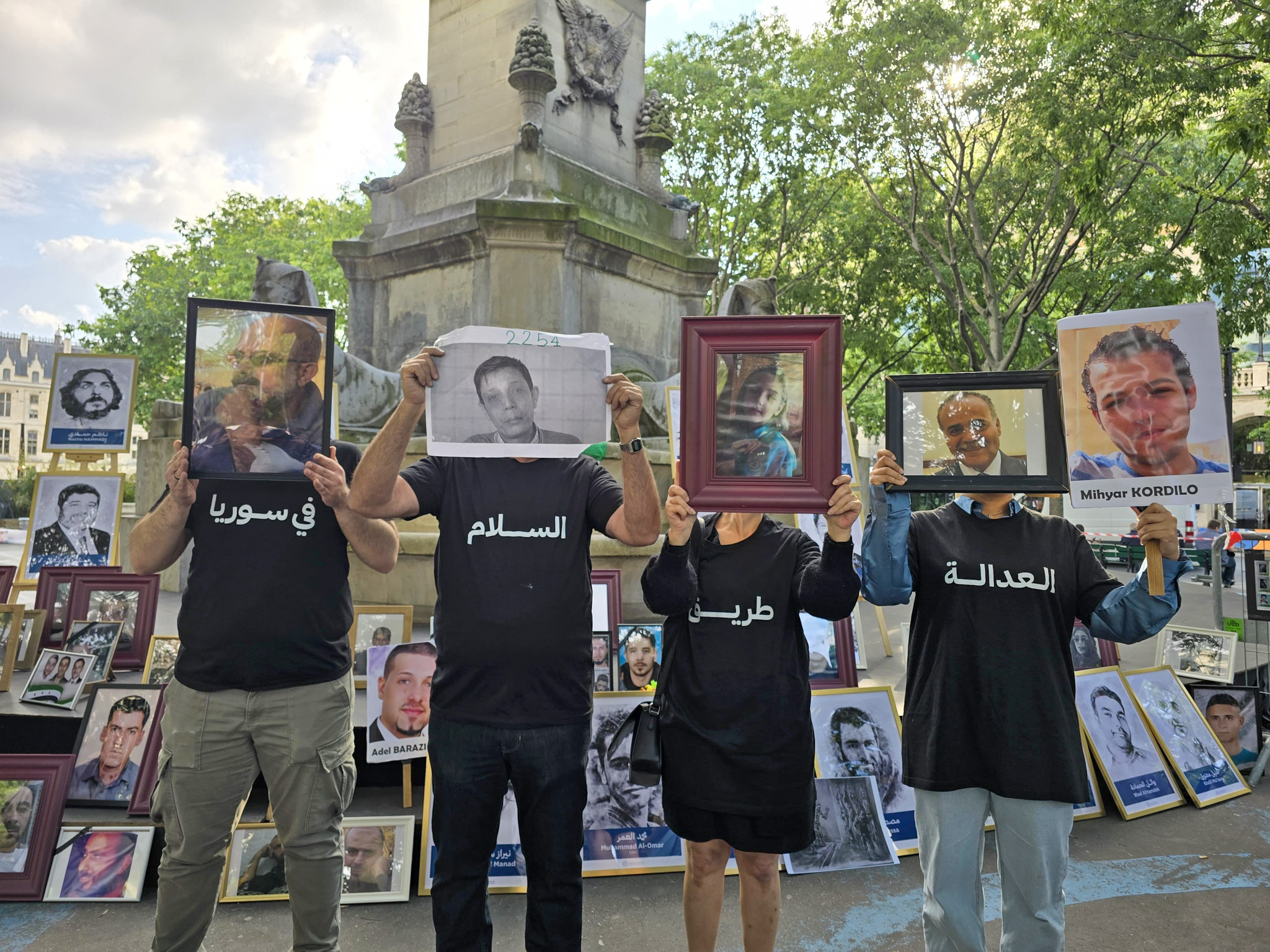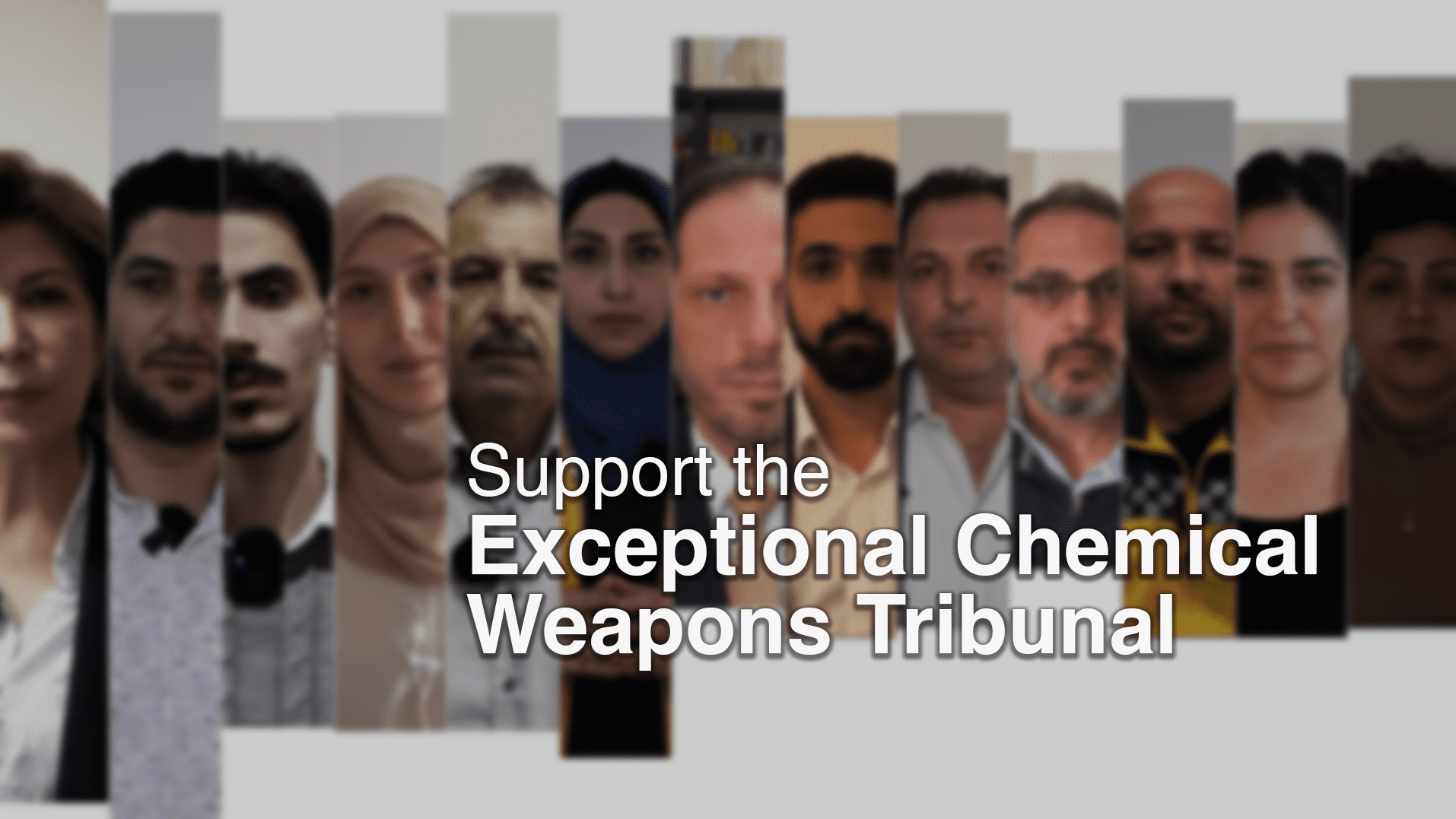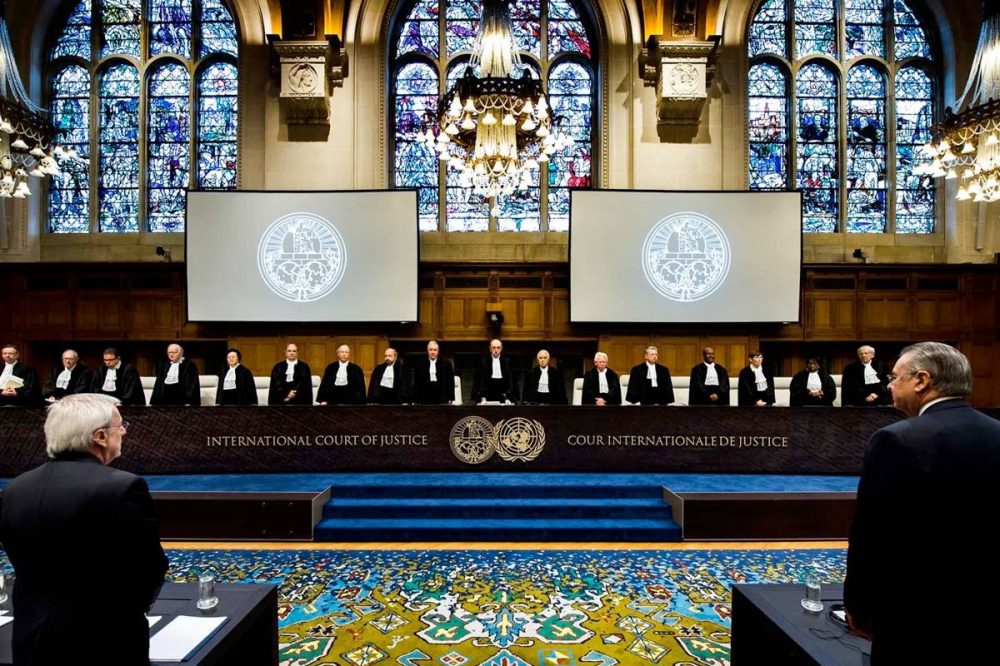May 23, 2025 | This post is also available in: Arabic

The associations and organizations signing this statement received Decree No. 20, issued by the Syrian President on May 17, 2025, which establishes a National Commission for Transitional Justice, with a mix of hope and concern.
While the decree represents a long-awaited step for many Syrians due to its great significance in opening a national path toward transitional justice, its content raises fundamental concerns regarding the Commission’s vision, its mandate, and its potential ability to adequately and fairly address the long and bloody legacy of atrocities and violations—an essential prerequisite for genuine national recovery.
Moreover, there are serious questions about whether the Commission’s mandate aligns with the principles of the Constitutional Declaration on one hand, and with international human rights law and international humanitarian law on the other.
First – On the Content of the Decree and Core Concerns:
There is no dispute that the now-defunct regime committed international crimes and human rights violations on a scale, in severity, and with a systematic nature that is unmatched by any other local actor. However, this does not negate the fact that other parties have also committed similarly heinous crimes—albeit less frequent, widespread, or systematic. The gravity of such atrocities, regardless of who committed them, demands recognition, condemnation, redress for victims, and accountability for perpetrators without exception or discrimination, in order to prevent their normalization, recurrence, and further expansion.
Accordingly, the undersigned believe that full disclosure of these crimes and accountability for those individually responsible—regardless of their affiliation or organizational alignment during the years of the revolution and conflict—is essential to laying the foundations for a safe, just, and sustainable transition toward a Syria that is fairer, freer, and more equal for all its citizens, based on equal citizenship in both rights and duties. This approach is key to breaking the cycle of impunity, preventing the repetition of atrocities, and severing ties with a past that must be reckoned with liberating the minds and wills of all Syrians.
The signatories express concern that the Decree may become a pretext to use part of the truth to construct a selective and partial form of “justice”, one that excludes certain categories of victims from the realm of citizenship. This would deny them their rights to recognition and reparation, and turn the principle of truth-seeking into a privilege granted to some while denied to others. It would also instrumentalize accountability to entrench discrimination or establish hierarchies among victims. True justice, however, requires recognition of the right to remedy for all victims without discrimination, including their right to fair and impartial investigations into all violations and crimes, as well as the full range of transitional justice measures.
Second – On the Contradiction with the Constitutional Declaration and International Charters:
Limiting the Commission’s mandate to investigating only crimes committed by one party constitutes a violation of the principle of equality enshrined in Article 10 of the Constitutional Declaration of the Syrian Arab Republic, issued on 13 March 2025. Such a restriction risks turning the Commission into a tool that discriminates among victims, rather than an instrument for delivering inclusive justice that ensures redress for all victims—without exception or discrimination.
Moreover, international human rights law and the international treaties referenced in Article 12(2) of the same Constitutional Declaration require a holistic approach to addressing all human rights violations. This is essential to ensure recognition of victims’ rights, uncover the truth, achieve accountability and reparations, and guarantee non-repetition of such violations.
Third- Core Demands:
1. The Decree No. 20 must be followed by the adoption of a dedicated Transitional Justice Law, to be issued by the legislative authority once established. This law should clearly define the mandate, jurisdiction, and appointment criteria for the members of the Commission, in a manner that guarantees its independence and professionalism. The drafting of this law must be grounded in serious and genuine consultative processes that meaningfully engage victims, civil society actors, and human rights experts, in order to arrive at the most effective and just formulation.
2. Under this Transitional Justice Law, the mandate of the National Commission for Transitional Justice must cover all violations committed in Syria during both Assad regimes and until the end of the transitional period. This is essential to ensure the immediate cessation of ongoing violations, uphold the rule of law, deliver justice, and prevent impunity for all perpetrators, regardless of affiliation.
3. An inclusive and non-discriminatory approach to transitional justice must be adopted, encompassing truth-seeking, accountability, reparations, and guarantees of non-repetition. This approach should include support for local investigative bodies, such as the National Committee for Investigation and Fact-Finding into the Events on the Syrian Coast—established by Presidential Decree No. (3)—and treat its work as an integral part of the transitional justice process.
4. Ensure that the implementation of Decree No. 20 aligns with the Constitutional Declaration, the international treaties ratified by the Syrian Arab Republic, international human rights law, international humanitarian law, and the United Nations guiding principles on transitional justice.
5. Adopt a victim-centered approach that guarantees the structural participation of survivors, their families, and the families of the forcibly disappeared and missing persons in decision-making. This includes their involvement in the design, implementation, and monitoring of the Commission’s work, as well as the adoption of performance indicators and satisfaction metrics based on this approach.
6. Adopt a participatory and consultative approach with Syrian civil society organizations, and formally recognize their essential role in the planning, implementation, and oversight of the transitional justice process.
7. Ensure full transparency in the Commission’s operations, including public disclosure of its internal regulations, work plans, and decision-making mechanisms. The Commission should also issue regular public reports and briefings to demonstrate progress and results, in line with recommended international standards.
8. Foster close cooperation with relevant international and UN mechanisms, to ensure complementarity and benefit from their accumulated expertise and resources in advancing justice and reparation efforts.
In conclusion, we affirm that this moment presents a rare opportunity to rebuild trust in the state and in the very concept of justice. Civil peace cannot be built on the basis of discrimination between victims or selective accountability, but rather on a solid foundation of truth, dignity, recognition, and redress. We renew our call to revise the text of the Decree during the designated period for drafting the internal bylaws, in a manner that ensures the National Commission for Transitional Justice becomes a genuine and inclusive starting point for a national path toward a free and just Syria.
The signatory organizations:
1. Truth and Justice Charter:
• Massar
• Synergy Association for Victims
• Ta’afi Initiative
• Caesar Families Association
• Families for Freedom
• Families for Truth and Justice
2. The Civil Peace Group
3. Huquqyat
4. Syrians for Truth and Justice
5. Release Me
6. Justice for Life
7. Women Now for Development
8. Bidayetna Initiative
9. Association of Families of Missing Asylum Seekers (AFOMAS)
10. Sustainable Development Association
11. Lelun Association for Victims
12. Palestinians of Syria Detainees Campaign
13. The Syrian Legal Development Program (SLDP)
14. Association of Detainees and Missing Persons of Sednaya Prison (ADMSP)
15. Dawlaty












